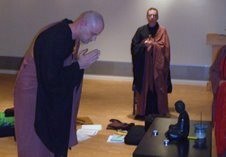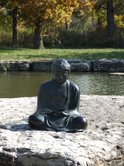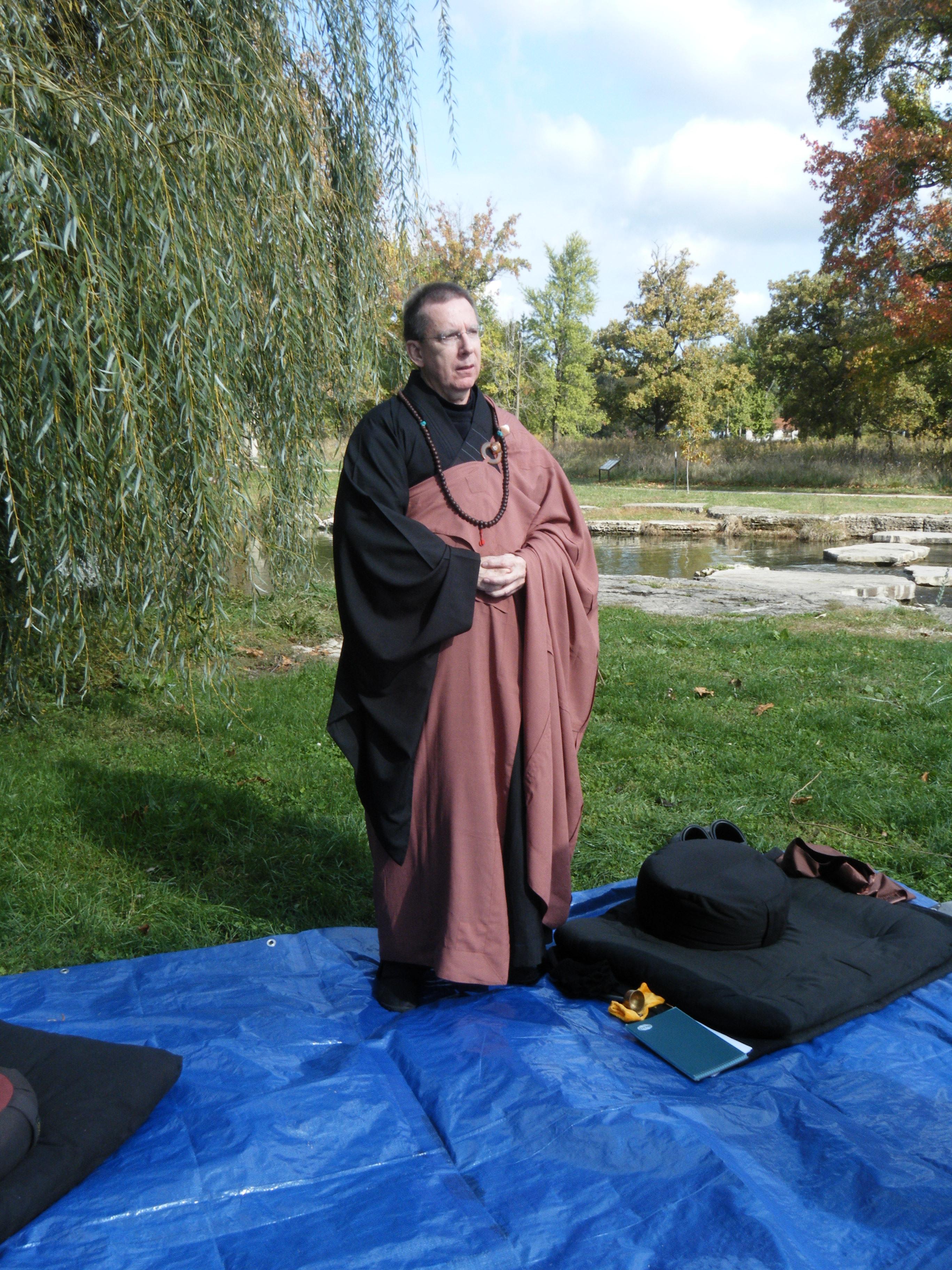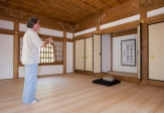By: Xi-Ken Shi
The Buddhist say “homeless” to mean a monk (or in Japan a priest) using the word SHUKKE which literally means “out of the house”. It refers to a person who has supposedly left the householder’s life and the temptations and obligations of the secular world behind. Another phrase, “leaving the world,” means getting away from the imperfections of human behavior, particularly as reinforced by urban life. It does not mean distancing yourself from the natural world. For some it has meant living as mountain hermits or members of religious communities or living as a monk within one’s own community acting upon the responsibility of a social self. Enlarging the scale of the homeless world, the fifth-century poet Zhiang-yan said the proper hermit should “take the purple heavens to be his hut, the encircling sea to be his pond, roaring with laughter in his nakedness, walking along singing with his hair hanging down”. The early Tang poet Han-shan is taken as the very model of a recluse — his spacious home reaches to the end of the universe:
“I settled at Cold Mountain long ago, already it seems like years and years. Freely drifting, I prowl the woods and streams and linger watching things themselves. Men don’t get this far into the mountains, white clouds gather and billow. Thin grass does for a mattress, the blue sky makes a good quilt. Happy with a stone underhead let heaven and earth go about their changes.”
“Homeless” here means “being at home in the whole universe” another expression of unity. In a similar way, self-determined people who have not lost the wholeness of their place can see their households and their regional mountains or woods as within the same sphere.
When I was in China I attended a ceremony at a shrine in the mountains not far from my monastery. The path through the jungle needed brushing, so rarely did people go there. I and my interpreter-monk went as helpers for three very old senior monks. We spent the morning cutting overgrowth back, sweeping the ground, opening and wiping the unpainted wood altar-structure and then placing some offerings of sweet potatoes and fruit (if my mind servers me correctly) on the shelf before the blank space that framed the mountain in front of the alter. No candles, no Buddha, just the mountain view. One of the old monks then faced the peak and made a direct perfunctory personal speech or prayer in a dialect that my interpreter could not translate. We than sat on the ground sweating and cut open a watermelon and drank some of the strong tea, while the old guys told stories of other days in the monastery and on this mountain when they were young. Tall, thick and glossy green trees arched over us, roaring with cicada. It was not trivial at the time and in my memory now. The domestic parallel is accomplished in each household with its photos of family, familiar objects in the home we live with all our lives, maybe a family pet to keep us company, as we sit around the table talking about old times. But for these three old men, it was this spot, this mountain and these trees. It was where they felt at home and together.
Then the literal “house” when seen as just another piece of the world, is itself impermanent and composite, a poor “homeless” thing in its own right. Houses are made up and heaped together, of wood, brick, cement, steel and other materials to make doors, windows, walls, floors, a roof, knobs from K-mart if you are poor, made up of the same world as you and me and mice.
Mountains are neither sentient nor insentient. You are neither sentient nor insentient. At this moment, you cannot doubt the blue mountains walking.
Not only flower blossoms and clouds or monks or priests — but chisels, bent nails, wheelbarrows, and squeaky doors are all teaching the truth of the way things are. The conditions of true “homelessness” is the maturity of relying on nothing and responding to whatever turns up on the doorstep. Dogen encourages us with the words: “A mountain always practices in every place.”
Where is your house? Are you ready to have a “homeless practice” in order to find your mountain?


















































































